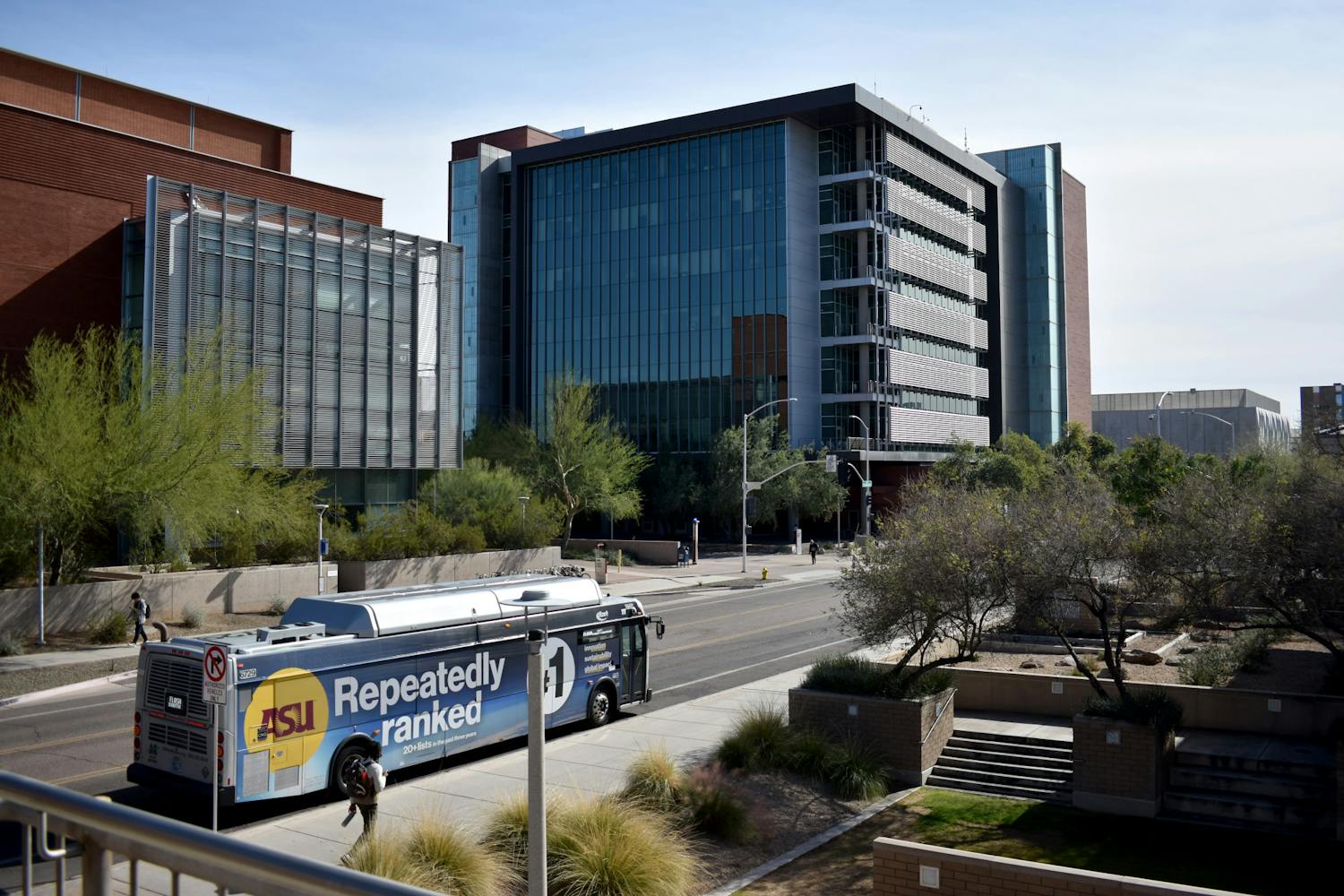Police departments from across the Valley spoke to ASU students on the Tempe campus about public safety topics ranging from loud party violations to campus safety in the case of an active gunman at a panel in Old Main on Monday evening.
The Tempe Undergraduate Student Government and ASU Police collaborated on the event, which welcomed representatives from the ASU, Tempe, Glendale, Gilbert, Mesa and Phoenix police departments to answer student questions about public safety issues.
The panel had less than 30 people in attendance and was also broadcast online for those who were unable to attend.
Tempe officer Jeff Lane, Mesa officer Patty Gallagher, Glendale officer Andrew Lynes, Phoenix officer Julie Smith, Gilbert officer Vickie Owen and ASU officer Brian Kiefling expressed the use of public safety education as a form of crime deterrent.
Each department offers different types of education on how to respond in the case of a rape or assault as well as proper measures to prevent burglary, theft and drug abuse.
Lane, who has worked with the Tempe Police Department for 19 years, said the department received 150,800 calls to service in 2012, which is down 10 percent from 2011 statistics.
He said most calls to service are related to noise violations and loud parties.
"We are constantly going to loud party call after call after call," Lane said. "We understand that they're not all college students ... but college students like to have their parties."
He said Tempe Police focus on keeping neighborhoods quiet, not arresting people, and the department usually issues a warning the first time a noise violation is noted.
"If you get that one warning, close it down," Lane said.
He said the second highest amount of calls come in regards to burglarized vehicles.
ASU Officer Kiefling, who is also a part-time film student at the University, said the greatest problem on ASU campuses is bike theft.
He said proper measures ought to be taken to ensure bikes are registered with the ASU Police Department so that bike thieves are arrested and property is returned to students in a timely manner.
Kiefling said the department is working on a large project to install video cameras throughout all four campuses and expects the project to take several years to complete. He said this project is largely to prevent burglary in high-theft report areas, such as Parking Structure 4.
"It's not that Big Brother is watching you," Kiefling said. "It's a crime prevention technique."
Phoenix Officer Smith, who is a Phoenix native and an ASU alumna, said she became a police officer after her interactions with ASU Police as a student.
She said one of the opportunities available to students who wish to learn more about police work is a program offering ride-alongs.
Smith, who has full sleeves of tattoos, said it's important for students to remember that police officers are people.
"You're dealing with somebody who's got quirks just like you do," Smith said.
Students asked officers questions focused on Greek issues and national controversial guns-on-campus issues. Several brothers from the Theta Chi fraternity were in attendance and asked the officers about what it takes to convert a residential house into a fraternity house.
Kiefling said students ought to look out for their peers and bring suspicious activity to someone's attention. He said it's crucial for students to be constantly alert and aware of their surroundings in case of an emergency.
"Always be thinking of an escape plan," Kiefling said. "You need to get yourself in the mental mindset that you're not safe anywhere."
Marketing junior Anthony Maggio, the special events coordinator for Tempe USG, said USG hopes to make the police forum an annual event for students to participate in.
"Whatever the students have interest in hearing about, whether it be parties, noise complaints, drinking tickets. ... It's their time to get their questions answered," Maggio said.
He said it was important to include police departments not only from ASU and Tempe, but from Phoenix, Glendale, Gilbert and Mesa, to demonstrate the fundamental ways in which police interact with citizens from all areas of the Valley.
"It brings more uniformity to understanding the rules that ASU Police have and how they enforce them," Maggio said.
He said offering eduction to students will not only have the potential to decrease crime — such as alcohol-related offenses — around campus, but will offer insight into some of the safety-related tragedies the U.S. has seen this year.
Maggio said it's crucial that students understand how law enforcement operates on a University campus as well as how current events impact the way police officers respond in particular situations, such as gun-related incidents.
"There are so many things happening ... in the country," he said. "If students are educated on why the police do what they do, I think it will be easier for students to work with the local police."
Reach the reporter at dgrobmei@asu.edu or follow her on Twitter @danigrobmeier



